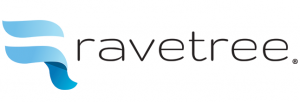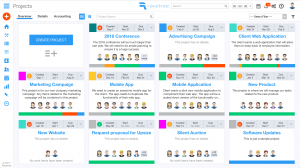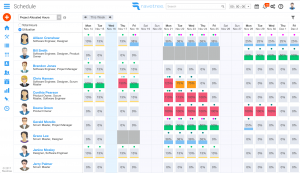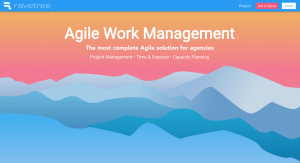Feature Spotlight: Davidson Wicker, CEO of Ravetree
As those of you who have known us over the last few years are aware, The Bookkeeper grew quickly. When new employees were brought on board, it became obvious that our old, piecemeal system of digital file storage in one location, a time tracking app in another, and endless emails detailing project updates, would not be sufficient as we scaled.
We were fortunate to come across Ravetree in its early days, and to have the opportunity to adopt it to our business. It has been a true "game-changer" for us, and has really allowed us to stay on top of all of our client and operational needs, even during rapid expansion.
I got to ask Ravetree CEO Davidson Wicker a few questions about himself, his company, and their product.

Courtney: I saw that your educational background is in Applied Physics. How did you transition that into a career in software development?
Davidson: I taught physics for a couple of years as I was building up my coding skills. We did some scientific programming in grad school, so that's where I started to get a taste of how fun programming could be.



Local Entrepreneur Spotlight: An Interview with Dave Baldwin of Baldwin Management Consultants
 Courtney recently sat down with Dave Baldwin, of Baldwin Management Consultants, in Raleigh. From his website: "Dave Baldwin is an experienced marketer and self-taught entrepreneur who first went into business for himself in 2007 after ten years in the technical field, spurred on by a desire to help introverted entrepreneurs succeed in business. Dave has worked with clients in a variety of different industries."
Courtney recently sat down with Dave Baldwin, of Baldwin Management Consultants, in Raleigh. From his website: "Dave Baldwin is an experienced marketer and self-taught entrepreneur who first went into business for himself in 2007 after ten years in the technical field, spurred on by a desire to help introverted entrepreneurs succeed in business. Dave has worked with clients in a variety of different industries."
Courtney: I can't start without asking about "Let's Not Have Coffee". Why do you think that piece has become so popular so quickly?
My other skill set is marketing copywriting, which is mostly a matter of speaking the customer's language. That's not easy, but I've developed some simple methods for uncovering what's important to customers. It starts with asking the right questions, and I've been told I have a gift for that. Being a consultant is not about telling someone what to do. It's about helping a client create a solution that they feel good about. Most people already have most of the knowledge they need to solve their own problems, but they just haven't looked at their situation from the right vantage point. A good marketing message should help them see things in a new way.
In addition to being an established local entrepreneur, Dave is one of the breakout speakers at the upcoming Triangle Small Business Summit, sponsored by Affordable Promos and The Bookkeeper. Dave will be speaking on Using Technology and Automation to Grow Your Small Business.
